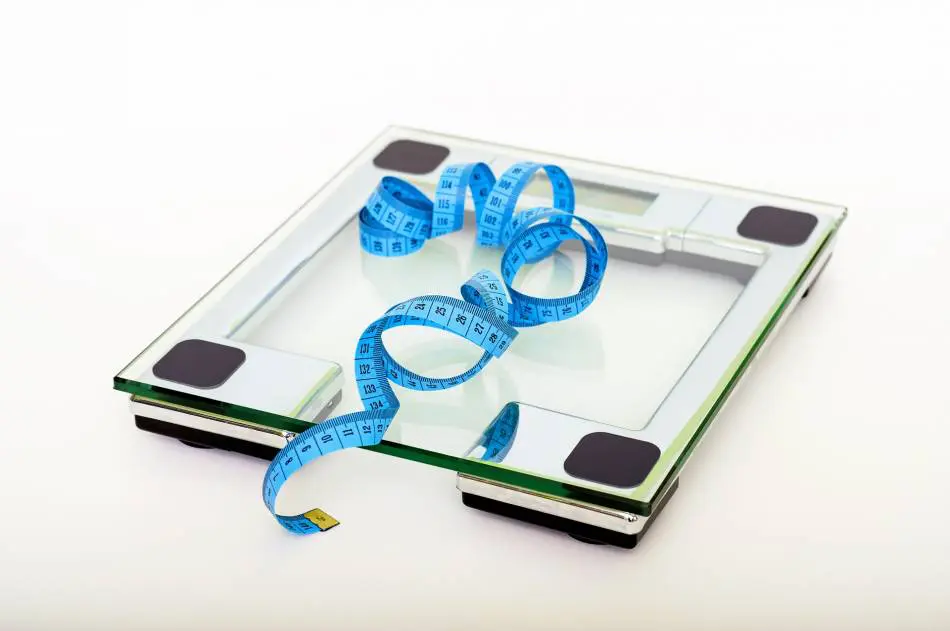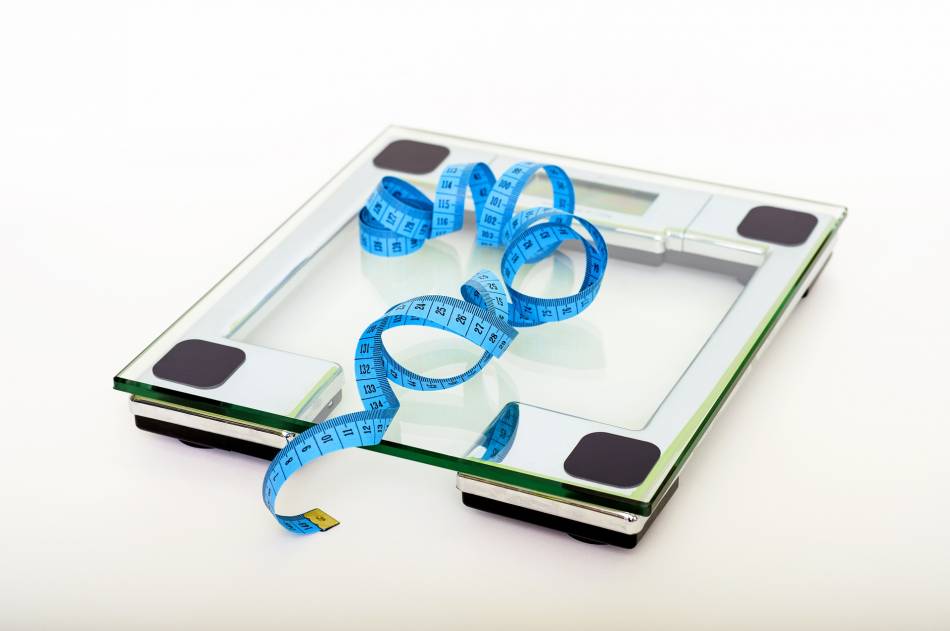
Do you have a slow metabolism? Let the metabolism-accelerator tips help you!
What is metabolism?
|
Metabolism indicates how much energy does your body consume, and how many calories does it burns per day. |
As a start, you should calculate your daily metabolism that shows you how much energy you would use if you stayed in the same place all they long. That is, even when you do not move, you use energy (burn calories), since you also need energy for your heart to beat, breathing and to maintain body temperature.
In order to calculate your daily energy requirement, you need to add the energy consumed throughout your daily activity to your basic metabolism rate or your basic caloric requirement.
What does your metabolism depend on?
Some factors have an effect on your metabolism, but yet on basic metabolism too, in other words, on the rest state of your energy requirement. Let’s see what are these!
Sex
Men have a higher rate of energy consumption, therefore, their metabolism rate is also higher. The portion of muscle mass is bigger in their body, and measurements prove that muscles burn three times more calories than fat-cells, which explains why do they have a better metabolism.
Age
As you grow older metabolism slows down, energy consumption becomes lower, therefore, caloric requirement is an important aspect when determining basic metabolism, too.
Body mass
Weight also influences energy consumption, because that makes a difference if an extra weight of 1-2 kg or 10 kg has to be carried. In case this extra weight is built up by muscle mass, then this is markedly positive, because muscles have higher metabolism consumption.
State of health
Some illnesses also influence metabolism, like for example in terms of low thyrogenic function, metabolism slows down, while hyperthyrogidism causes basic metabolism to become faster.
Genetics
Naturally different people have different digestion, metabolism, but body composition, too. There are people whose body have slower metabolism, more susceptible to obesity, as well as people who have slimmer shape. Of course, this could not be an excuse for anyone, because there is the possibility to fight against.
Amount of exercise
It is the factor of activity that influences energy consumption, in other words metabolism, more than anything. Namely, the amount of exercise, the type of work, regular sports, and the quality of life are all affecting energy consumption.
How do you know that you have a slow metabolism?
Metabolism slows down a little bit as you grow older, but you can fight it easily.
|
Using diet treatments with a low caloricity (that is under basic metabolism rate) forces your body to switch into reserve mode, thus you slow down energy consumption even more. |
Other factors include lack of exercise and irregular meals, especially if there are too long intervals between the two. Our body gains energy and builds up itself with the help of metabolism processes.
What are the symptoms of slow metabolism?
-
If the extra kilos are continuously depositing on you — mainly around the areas of your stomach and waist —, and you feel so that it does not seem to change despite doing sports and living a healthy lifestyle.
-
You frequently suffer from flatulence, and it is hard for you to get rid of metabolic end products.
-
Hormonal deficiency, or many times glucose metabolism disturbance, or digestive problems break out.
It is worth keeping metabolism in its optimal state, because hereby you can avoid cardiovascular or other metabolic problems. It only takes a little bit more time to be spent on daily conscious lifestyle.

Advices to speed up metabolism: rev up your body!
The word of metabolism is the most frequently misinterpreted one in connection with training or nourishment. Many people claim that the reason of their inability to reach their goals is that they have genetically slow metabolism. Although, genetics plays a role in metabolism, but not to such extent that we can read it from numerous sources. Good news, however, is that you can do a lot to speed it up!
Start doing exercise!
One of the easiest ways of speeding up metabolism is regularly doing sports, and more exercise. Our body does not only burn more energy with the help of sports, but the higher proportion of muscular tissues developed as a result is accompanied by higher energy demand.
|
As a result of doing active sports for about 1 hour, metabolism demand grows by about 400-600 calories — naturally, depending on the type of sport activity, body, weight and other factors. |
The amount of sport activity should be determined in a personalised way, depending on the state of hardiness and daily agenda. However, 1-1,5 hours three times a week is recommended for everyone, especially for those who do sitting work. Doing sports is a very good stress reduction method, too, hereby it has a double beneficial result! It is worth finding the activity that we can carry out on the long run and with pleasure, as this is the secret to success.
Interval training
Interval training is a particularly good method to speed up metabolism, because it keeps metabolism on a high level not only during the workout but in the forthcoming hours as well. Keep exchanging half-1 minute exercises on about 80-90% intensity, with 1-2 minutes lower intensity exercises.
Think about it, for example if we consider the mechanism of a car. If you keep alternating between acceleration and breaking, it needs much more fuel to burn than if you would proceed at a balanced speed. The same is true for our body as well.
Example: running on a treadmill with 11 km/h for 30 seconds, then 1 minute of walking with 3 km/h.
Weight-lifting workout
Weight-lifting workout, similar to interval, keeps on with revving up metabolism after the workout, too. Of course in order to make this happen, it is not enough to screw around with 1 kg weights while reading the newspaper in the meantime. It requires intensive and hard workout.
Muscle mass
Many women on a slimming diet are afraid of muscle gain, yet when they hear only the word. Muscle mass reminds most of the people about a two-door-cupboard shaped man. However, this is far from the real necessities.
A solid, athletic muscular apparatus is very much attractive to the eyes, let it be owned by a woman or a man. Building it up is not a piece of cake, yet from the viewpoint of metabolism it has a particularly beneficent effect. Namely, the muscle tissue is much more active than fat tissue. It requires more energy, therefore, every muscle consumes extra 60-100 calories.

Change the way you eat!
|
Eating regularly and the appropriate amount is the key to a diet menu, and to quick metabolism, too. |
If our body knows how much time does it take for it to get energy again, then it does not have to reserve. Enough amount of calorie is also important not to make our body start storing. Those who are on diet frequently make the mistake of putting together menus that are under the basic metabolism rate, and stick to them for a long time. As a result of 600-1000 calorie miracle dietary regimens, our body switches on storing mode and tries to take the very last molecule of energy out of that small amount of ingested food, therefore, it slows down the energy consumption of the body. Naturally, when it obtains food again after the dietary regime is over, the storing mode of the body sustains and all of a sudden kilos are starting to deposit on us.
5-6 meals daily
It is a basic dietary principle, but it cannot be said enough times. Eating in itself speeds up metabolism, but it does not mean that you should rush to a fast-food restaurant at once. Have smaller meals on several occasions, despite having 3 big meals.
When your body does not get enough food, metabolism slows down, as it is protecting itself from starving. If you eat irregularly and/or rarely, your body can prepare itself for it. However, if you eat smaller portions more frequently, within every 2-3 hours, resupply becomes calculable for your body. To cap it all, in this way you will not become hungry!
Eat spices!
Spices, and especially hot spices also have an effect of speeding up metabolism. One of the ingredients of chili, capsaicine, for example speeds up metabolism and reduces appetite. Next to the stimulating, metabolism-speeder effect, pepper is also effective against viruses, according to folk medicine.
The active ingredients of ginger stimulate the production of digestion enzymes of the stomach, thus improving the process of digestion. It is a particularly good choice beside meals of higher protein content. Volatile oils of garlic also help to speed up metabolism, but they are very good for strengthening the immune system, as well as against flatulence. But be careful, always endeavour to achieve balance, because by ingesting too much hot spices you can lie heavy upon the stomach and the intestines.
Eat a lot of fibres and proteins!
Protein intake requires a higher amount of energy from the body all by itself, due to the fact that it is harder to digest it; however, the muscle tissue developed by doing sports also results in higher energy consumption, that ends up in revving up metabolism. It is worth to eat fibres beside every meals, which we can extract from vegetables, fruits and wholemeal grains.
Fibres help purification and digestion too, but they have an enormous role in the formation of a stable blood-sugar level. It contributes to clean the remains of food and proteins stuck to the villi, thus preventing inflammatory processes. This is why it is worth eating any types of vegetables, or salads beside meat.
Use natural ingredients!
It is worth avoiding pre-prepared processed foods full of additives.
|
Everything that our body does not need lies heavy upon metabolism, because it is difficult for it to secrete them, and many times they are stored in fat deposits. |
Instead it is better to choose those types of foods, that went through as few processing methods as possible. The simplest wording could be that they should be as close to their natural presence as possible. We need the nutriments, not the unrequired additives. Look around your neighbourhood in order to know where you can acquire these and always plan your week in advance.

More liquids!
Water has a vast number of roles in your body, for example to speed up your metabolism. You may feel hungry because of dehydration, thus you might eat more than enough.
60-70% of the body is made up of water. It secures proper blood pressure and blood circulation, thereby transporting the nutriments and oxygen to the cells. It has a crucial role in terms of digestion, absorption and secretion of roughages. It contributes to the regulation of acid-base balance and body temperature. It is recommended to drink at least 3-4 litres of sugar free liquid daily!
Drink enough water!
Fresh water is the best choice. Usually we do not need extra sugar or flavour additives. Orderliness has the same importance in terms of drinking water as in case of nourishment. It is worth to drink less, one-one glasses each time, but more frequently. By all means, you should start with one glass of water in the morning. It is not recommended to drink bigger quantities during and before meals, because it takes away space from the food, and seemingly have enough quickly, but you will become hungry too within a short time.
This should not be exaggerated neither, because, on the one hand, excessive amount of water lies heavy upon the kidneys, on the other hand, it may cause hyponatraemia too, that may have serious consequences.
Caffeine is also helpful!
Caffeine that can be found in coffee and tea also has an effect of revving up metabolism. It mainly affects the operation of the thyroid gland, that is accountable for regulating metabolism. Green, black and maté teas contain caffeine.
However, you can become addicted to caffeine too, and exaggerated amounts (above 600 mg per day) can result in nausea, feeling sick and dizziness. There is 50 mg in a cup of coffee, 80 mg in an espresso, while there is 90 mg of caffeine in a long coffee. 2-3 cups of coffee or tea per day will absolutely not cause any problems, in fact, according to certain studies, people who moderately drink coffee are healthier.
There are some people who are more sensitive to caffeine, but experts suggest not to drink it after 3 p.m. and no way within 5-6 hours before sleep. Fortunately, there are other solutions free from stimuli to boost up metabolism.
To achieve success, take care of your metabolism
Do not accuse your metabolism any more if you are unable to lose weight, because you can do much in order to rev it up! Take care of your meals, do regular sports, and you will reach your goals!
Tips you might as well take to speed up metabolism:
-
Make an effort to drink 3 litres of liquid per day, in order to make your body optimally hydrated and avoid eating because of thirst.
-
Make sure you eat regularly, eat smaller portions every 2-3 hours, hereby your body does not need to start storing.
-
Eat a lot of vegetables and fibres, if you do so, you can help your metabolism and digestion, as well as hereby you provide your body with minerals, that are also important for the operation of your body and metabolism.
-
Take care of protein intake, because this way you can maintain and develop your muscle mass, thus you can increase calorie consumption.
-
Eat natural foods that went through as minimal processing as possible, that you can spice up with a little seasoning!
